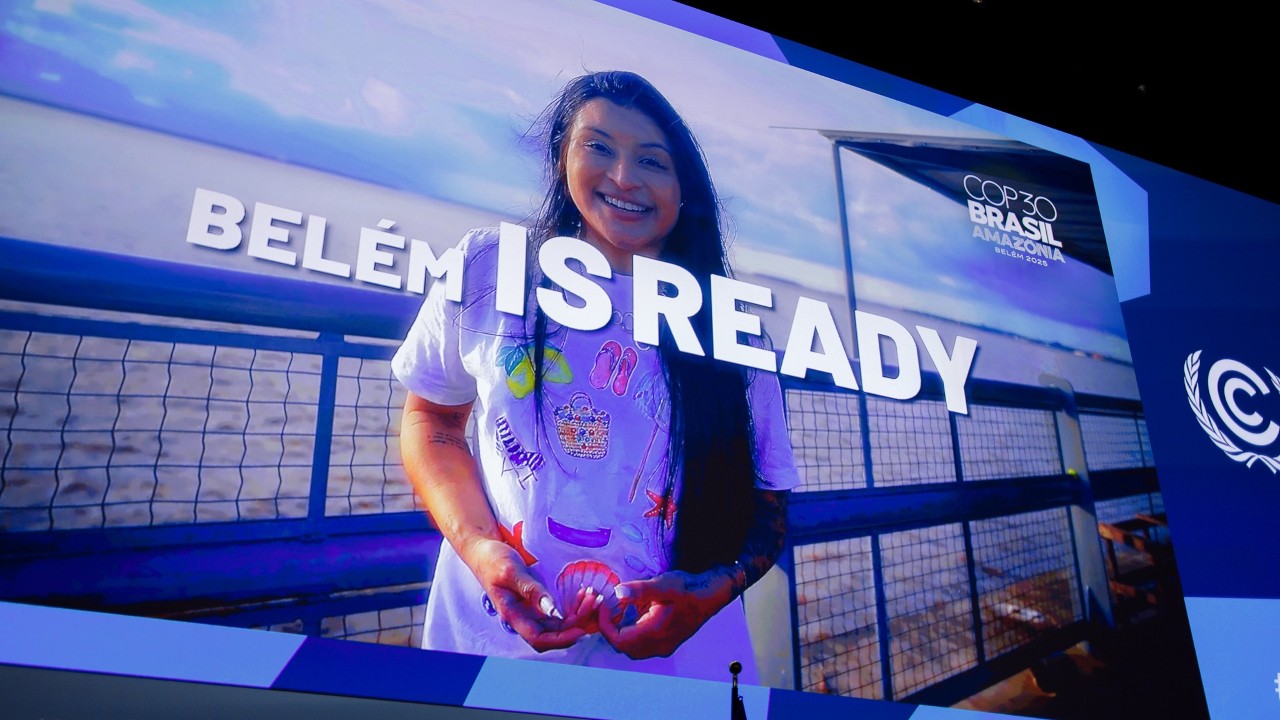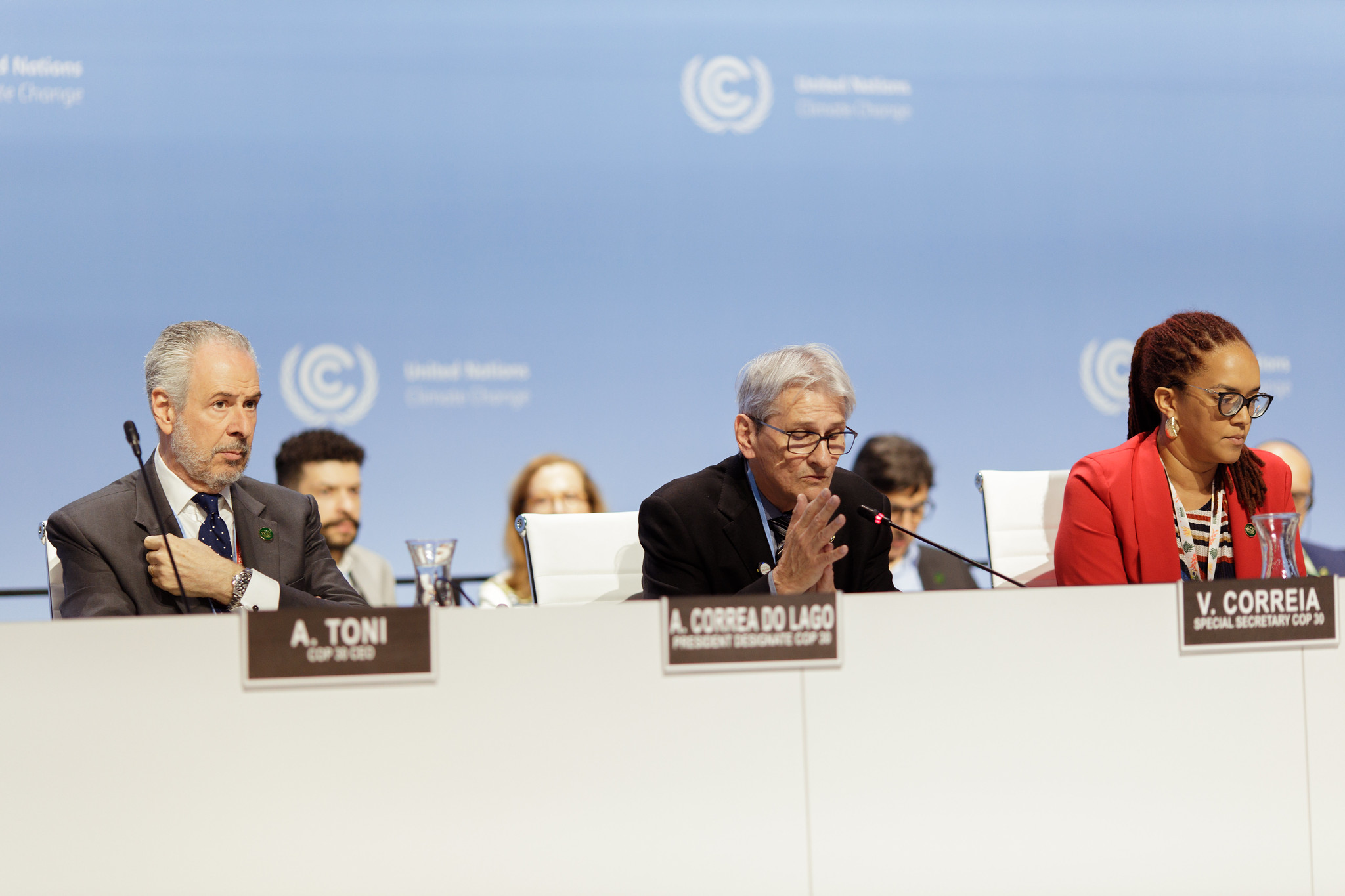COP30 coordination shares logistical updates: Brasil is ready to welcome the world
In Bonn, Germany, Brasil provides infrastructure update to international delegations, receiving positive feedback

By Franciéli Barcellos de Moraes | COP30
"Brasil is ready to welcome the world to COP30," a central theme underscored in a recent infrastructure update for Belém, the capital of Pará and the upcoming event's host city. The presentation took place during UNFCCC conference activities in Bonn, Germany, and was delivered by Valter Correia, Special Secretary for COP30 (SECOP) at the Office of the Chief of Staff (Casa Civil), alongside COP30 representatives André Corrêa do Lago, the COP30 president, and Ana Toni, the COP30 CEO.
On Thursday, June 19, a session convened representatives from participating countries and civil society groups, including women’s movements, Indigenous peoples, youth organizations, and non-governmental organizations (NGOs). Beyond highlighting the Brazilian government’s efforts to ensure COP30's success, the discussion addressed questions concerning transportation, lodging, and other logistical aspects of the event.
Ambassador André Corrêa do Lago, COP30 president, and Valter Correia both reaffirmed that construction and operational procedures are progressing as planned. Key highlights included the launch of the official accommodation platform, health recommendations, and the development of a menu emphasizing sustainability, cultural diversity, and support for family farming.
"Accommodation options are available for your free choice. We have never said that anyone would be required to share a room—that remains entirely optional. When we say we will provide lodging for all delegates and participants, we mean it. The platform is not yet live, as we are still refining the tools necessary to offer the most affordable prices. We are diligently working on this," Special Secretary Valter Correia reiterated.

Echoing his colleague, the president of COP30 also emphasized that 87% of the Brazilian population resides in urban areas, countering the notion that COP30 will occur "in the middle of the Amazon rainforest." Belém, despite its challenges, offers all the amenities of any other major Brazilian city.
"President Lula believes the symbolic importance of the location outweighs some of the logistical hurdles we will have to overcome in the coming months. Nevertheless, I want to emphasize that the city will be specially prepared. Public schools and government offices will be on recess during the COP, which will significantly ease circulation," the ambassador added.
This is not Brazil’s first time handling such a large-scale event. On the contrary, the country has a successful record of accomplishment in hosting major international events, such as Rio-92, the 2014 FIFA World Cup, and the 2016 Olympic Games — demonstrating its logistical, operational, and diplomatic capacity.
Here are some of the main points that were presented:
Accommodation: There will be more than 29,000 rooms and 55,000 beds available. Most of the options will be made up of short-term rentals, which total around 16,500 rooms and 25,000 beds. In addition, two cruise ships will be available for booking by the end of June, totaling 3,882 cabins and around 6,000 beds. The Official Accommodation Platform is scheduled to launch at the end of this month and will open with around 6,000 beds available in the first batch, which will be made available on a weekly basis.
Catering: Following COP tradition, Brasil will ensure healthy, inclusive, and culturally diverse food offerings, with menus respecting various diets and culinary traditions. Food, beverages, and water will be continuously available in accessible areas. Notably, 30 percent of all food will be sourced from family farming and agroecology, with a priority on local, low-carbon options.
Offices and pavilions: On June 18, the call for Expressions of Interest opened exclusively for entities recognized by the UNFCCC. Three modular pavilion packages are available, aligned with previous editions of the Conference and varying by size and materials. Interested parties will receive technical and logistical support throughout the process, which remains open until July 2.
Health: Participants will have free access to Brasil’s Unified Health System (SUS) in cases of emergency and urgent care. Additionally, the Ministry of Health (Ministério da Saúde/MS) will coordinate a special Integrated Health Operations Control Center (Centro Integrado de Operações de Controle em Saúde/CIOCS) for the event. Recommended vaccines include yellow fever and measles.
Security: Brasil will implement an integrated security operation, covering air, maritime, and cyber domains, designed to ensure safety not only in the Blue and Green Zones but across the entire Belém Metropolitan Area—including hotels, residential areas, and tourist zones. An additional measure is the “parking strategy,” which will utilize 27 regional airfields as logistical support bases to enhance air traffic flow and safety.
Visas: In addition to the standard visa information available on the official portal, which outlines the requirements depending on nationality, the main announcement was the implementation of an electronic visa system (e-Visa), which is set to launch next month. All accredited participants will be exempt from visa fees.
Flights: The expansion of air routes to Belém is underway. Direct international flights are already confirmed from Lisbon, Portugal; Fort Lauderdale, USA; Miami, USA; Cayenne, French Guiana (GF); and Paramaribo, Suriname (SR).
Further information will be released over the coming months.
English version: Trad. Bárbara Menezes.
Proofreading by Enrique Villamil.
